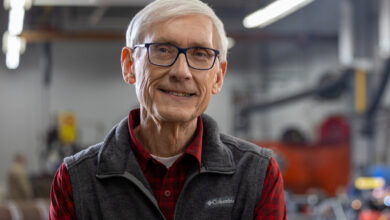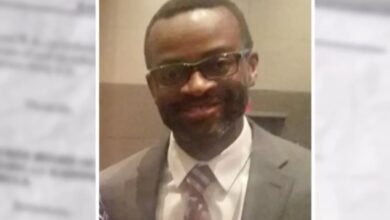
LGBTQ-Affirming Nonprofit Helps Houston Teens Find Permanent Housing
The Way Home aims to address the challenges facing older youth in foster care.

There are 11,000 kids in foster care in the state of Texas, according to the 2019 CPA Data Book. These are young people who have been removed from their homes due to abuse or neglect. And 1,100 of those youth will reach the age of 18 and be emancipated (or “aged-out” of the system) without being adopted. The Way Home Adoption, a Houston organization, is focused on connecting foster kids on the verge of emancipation with loving families before that happens.
Around 20 percent of these young people identify as LGBTQ—a vast over-representation, statistically. LGBTQ youth may have already encountered discrimination within the foster-care system, so they have an even steeper climb after they are emancipated.
When a child in foster care reaches the age of 18, national statistics show that they will face a daunting future as they attempt to thrive as adults without the benefit of supportive families:
• 5,000 emancipated youth die each year as a result of assault, illness, or suicide.
• 50% of the homeless population has spent time in foster care.
• 30% of emancipated foster males are incarcerated by age 21.
• 71% of foster females become pregnant by age 21, with 62% becoming pregnant more than once.
• 70% of emancipated foster youth will receive public welfare benefits by age 21.
The Way Home Adoption wants to change these statistics, as it has been proven that finding a permanent home can drastically reduce the chances of these kids falling victim to a system that doesn’t seem to care. And LGBTQ adoptive parents play a significant role in The Way Home’s mission.
“I’ve never had a child say, ‘I want a straight mom and dad only,’” says co-founder Kendall Pace Monroe. “We try to target LGBTQ parents for this reason. Sometimes they are older, and open to an older child. They are comfortable with a family that is not ‘traditional.’”
Monroe, 35, and co-founder Ashley Fields, 42, met while working together in social services. They kept coming back to working with older foster youth because it was clear that those kids had an immediate need that wasn’t being addressed. After doing their research and talking with Child Protective Services, elected leaders, and other organizations, they realized that none of them were focusing solely on older youth in foster care.
Fields summarizes the belief system behind The Way Home Adoption perfectly: “When relationships are what cause trauma to a child, relationships are also what can heal them. We knew that adoption or ‘forever relationships’ [are the key to] eliminating all of the staggering statistics.”
The Way Home Adoption focuses on LGBTQ youth because they have a higher than average number of foster-care placements than their non-LGBTQ counterparts, according to the Human Rights Campaign. This disparity is directly related to the non-affirming nature of many foster placements for LGBTQ youth, and the higher levels of bias and discrimination that they face.
Kristopher Sharp spent eight years in foster care in the Houston area before eventually being emancipated. “I was told that foster families didn’t want a gay kid in their home, so I grew up in group homes and residential centers where I was abused sexually, physically, and emotionally.”
The Way Home Adoption is not a full-service adoption agency. Their focus is on recruitment and matching services for older youth in foster care. They assist these teens by working on individual cases with a child-centric approach. They do, however, collaborate with CPS and other child-placement (adoption) agencies by including those youth in their program. They support potential parents by helping them get to know the youth so they can make an informed decision about adoption.
“We are a little like a cold-case unit, and a little like Match.com,” says Monroe.
She is referring to the fact that the older a child becomes while in foster care, the less likely they are to be placed with a permanent family. Traditional adoption efforts typically result in successful adoptions about 20 to 25 percent of the time. The Way Home’s approach has resulted in over half of their youth finding permanency.
The point of the service is not necessarily to match LGBTQ kids with LGBTQ parents, although that may happen. The purpose is to match kids who want a family with parents who want to provide that for them. Fields and Monroe recognize that LGBTQ individuals or couples may be reluctant about navigating the adoption system, due in large part to the discrimination they may have already faced when dealing with traditional adoption agencies.
“We get emails every now and then that say, ‘I’ve considered adoption, but am wondering if you guys are supportive of same-sex couples adopting.’ There is an unfortunate history within some adoption programs where same-sex couples are told they are not allowed to adopt. However, we are very supportive of LGBTQ parents or same-sex couples coming and meeting our kids and pursuing adoption,” Fields emphasizes.
Before COVID-19, The Way Home Adoption would schedule in-person group events where the kids and potential adoptive parents could interact and hopefully find a match. This might have been a painting class or a spotting event. Since March, these events have largely moved online, with fun activities followed by time to chat via Zoom. Although the pandemic makes things more challenging, it hasn’t slowed down the mission of the organization.
For more information on The Way Home Adoption, or information on donating, volunteering, or even becoming a parent, visit thewayhomeadoption.org.
This article appears in the February 2021 edition of OutSmart magazine.











Comments